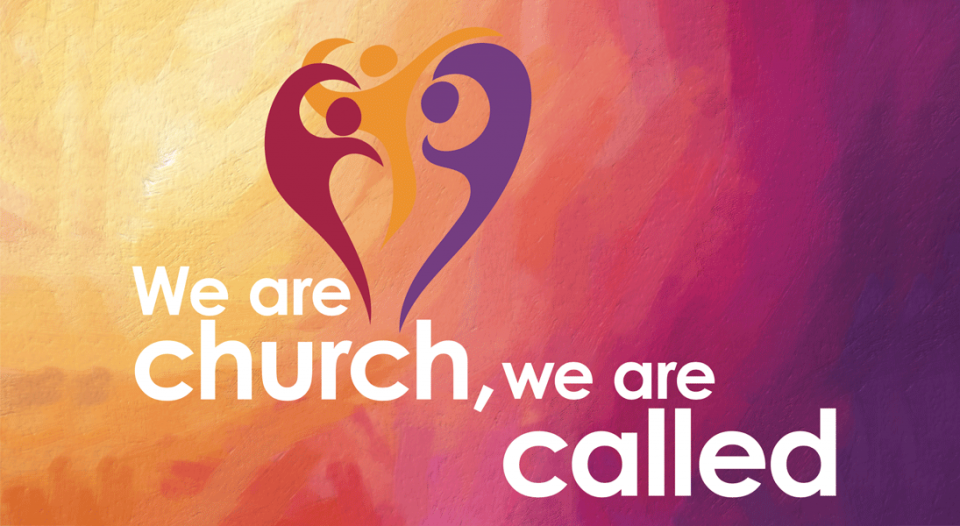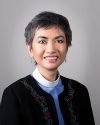Editor’s note: This year the ELCA celebrates 50 years of Lutheran women’s ordination in the United States, 40 years of the ordination of Lutheran women of color and 10 years of Lutheran LGBTQIA+ individuals’ freedom to serve. In this series, these leaders share their joys, struggles and gospel hope.
The declaration of martial law in the Philippines in 1972 was a defining moment in my life. As a junior, I’d been chosen as the next editor of the high school newspaper, something I was so excited about. That dream was shattered when the government under President Ferdinand Marcos took over all forms of media communication (radio, television and newspapers) to silence any opposing voices. Not only was it a moment of crisis for the nation, it was a moment of crisis for each person whose freedom had been taken away.
In those dark times, one person’s light shone brightly as someone who taught me to look beyond my small world and stand for what is true and loving and healing. Ed, a friend from college, was one of 67,000 political prisoners tortured as a subversive. His crime? Teaching poor people in rural areas about their rights.
Upon his release two years later, Ed and his wife went back to the people they loved in the mountains. Ed chose to live and work among the poor and showed them how things could be if people worked together for freedom from oppression and poverty. He presented a hopeful future in which every human being lived with dignity as a child of God.
I didn’t feel as brave as Ed did then, but the idea of loving, identifying with and caring for a community stuck with me. Little did I know that God had been grooming me to be a Lutheran pastor!
A persistent call
Growing up Roman Catholic, I had thought about becoming a nun—pastoral leadership was certainly not on my radar screen. But God has a sense of humor.
In 1986, I married Bruce, a lifelong Lutheran, in a Roman Catholic church, intending to raise our children Catholic. Then we decided to join a Lutheran congregation because of their kid-friendly Sunday school program. That was how I ended up attending an ELCA multicultural writers’ workshop in the mid-90s, which in turn led me to attend a Filipino consultation strategy meeting.
Ed was one of 67,000 political prisoners tortured. His crime? Teaching poor people about their rights.
There I met Fred Rajan, then ELCA director for multicultural ministries, who posed the question, “How would you like to become a pastor?” I laughed at the thought.
But God’s call persisted. I wrestled with God for a whole year.
I’m thankful that God won. Everything fell into place. My husband thought that pastoral ministry was the perfect career to bring together my gifts—my background in mass communications, my passion for healing, my genuine interest in caring for people and my spiritual leanings.
Rajan directed me to Edmond Yee, then a professor and director of the Theological Education for Emerging Ministries (TEEM) program at Pacific Lutheran Theological Seminary in Berkeley, Calif. By God’s grace, I received a TEEM scholarship from the seminary and my home congregation, Christ Lutheran, Baltimore, In 2002, I became the 17th person and first daughter of the congregation to become a pastor, answering a call to serve First Evangelical Lutheran Church in Ellicott City, Md.
Centered by the babaylan
While I was in seminary, a well-meaning Asian male pastor warned me, “You’ve got a double whammy. You are a woman and a person of color.” Back then, I didn’t understand what he meant. I do now.
Throughout my 17 years of ministry, I’ve seen sexism, patriarchy and racism manifested by the church in subtle ways. What is hurtful is that some women in positions of church leadership contribute to perpetuating this status quo without even realizing it. They see it as part of the norm. They are trapped within their own cultural patterns.
What has kept me centered in my call is another gift from my culture—the idea of a babaylan. Historically, the Philippines was a matriarchal society. Long before Christianity was introduced by Spanish missionaries in the 1500s, there was the babaylan. She was the priestess, healer, Indigenous shaman, herb doctor and village therapist rolled into one. She interceded for the community. She was the wise woman whose guidance people sought and relied on.
A well-meaning Asian male pastor warned me, “You’ve got a double whammy. You are a woman and a person of color.”
What a powerful image! The babaylan captured God’s vision for me—a person of color woman pastor with a gift for healing and a passion for nurturing and empowering a community.
Over the years, my perspective of community has kept getting larger—from a congregation to the Asian community to other ethnic communities to the wider church. In my role as president of the ELCA Association of Asians and Pacific Islanders, I’ve learned that it’s not enough to speak for one’s community. It’s crucial to connect and work together with the other ethnic associations so we can speak in a unified voice—loud enough that the wider church will hear us and respond to our common needs.
My vision of the church keeps expanding to embrace more people, especially those who are different from me. Indeed, we are all God’s children!





